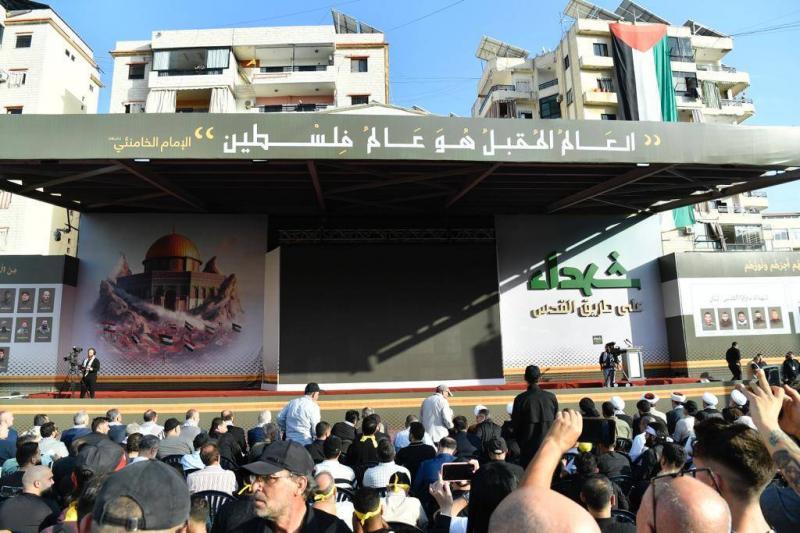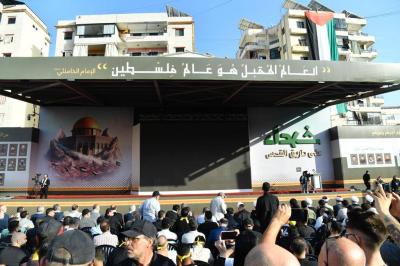The Secretary-General of "Hezbollah," Hassan Nasrallah, did not provide a clear answer regarding his decision about war and peace in the ongoing conflict in the Gaza Strip between the Israeli occupation and the "Islamic Resistance Movement - Hamas." Although he was explicit in avoiding an open confrontation, acknowledging the difficulty of its potential outcomes and repercussions, at the same time, he extended the state of engagement along the southern border indefinitely and announced the introduction of new groups to the southern front soon. This indicates that the forthcoming phase appears to involve prolonged engagement within the rules of engagement, influenced by Iranian-American arrangements underway in negotiations among Muscat, Doha, and Cairo.
Nasrallah offered a series of justifications to alleviate the disappointment of the Iranian axis regarding their notable inability to implement the slogan of "Uniting the Arenas" and to provide assistance to Hamas at the peak of the Israeli offensives against it and the Palestinian people in the Gaza Strip. This situation compelled most of Hamas's leadership in Beirut to go silent following his speech, due to the embarrassment faced in light of unprecedented backlash on social media condemning the lack of significant actions. The assertion that "the Islamic Resistance in Lebanon since October 8 is engaged in a real battle different from all the battles fought in Lebanon, whether in 2000 or 2006" has not been beneficial.
Thus, Nasrallah has Lebanon (not Israel) in a state of suspension; he neither declared an end to the confrontation nor concluded the ongoing state of attrition at the borders. Despite an increase in fire intensity, the rules of engagement dictate the course of events in the calculated clash between "the party" and the Israeli occupation army, a situation that has become evident to last indefinitely due to an international understanding that considers the Americans' view of "Israel's need" to regain balance and public confidence, alongside Iran's need to maintain its standing in the region.
Informed parliamentary sources familiar with the trajectory of international and regional communications confirm that this interim understanding is now in effect, the essence of which is to provide victory for the Israeli occupation while preserving face for Iran so that it remains capable of influencing the Palestinian issue. This will require additional time to mature and be realized, a time that will be paid for by the people of Gaza with their blood, as well as by the people of Lebanon directly at the border strip, and all Lebanese through the remaining stability of their already collapsing economy.
Sources indicate that under this understanding, Palestinians will not receive a ceasefire at this stage, a fact that Americans announce on every occasion. Iranian militias will continue their provocative movements against American forces in Iraq and Syria, and the Houthis will continue launching missiles suitable only for attacks on Saudi Arabia, without significant losses for the Americans. The southern front will become part of this ineffective bloodshed regarding the fate of the people of Gaza.
The inhabitants of the border strip have entered into a state of complete war, and with each passing day, the human cost rises, and tensions mount as signs of unrest begin to emerge from the Druze community, which refuses to enter the "fire zone" that is ravaging Sunni and Christian villages. Additionally, the "Amal" movement is opposed to any military actions being launched from the villages where it has popular, political, and security control.
Observers following the internal and external developments ask: why do the harassment operations continue if they do not stop the massacres in Gaza? The level of Israeli crimes in the strip has risen following Nasrallah's speech, and why should Lebanon pay the price for understandings that bring the country nothing but destruction and devastation?




